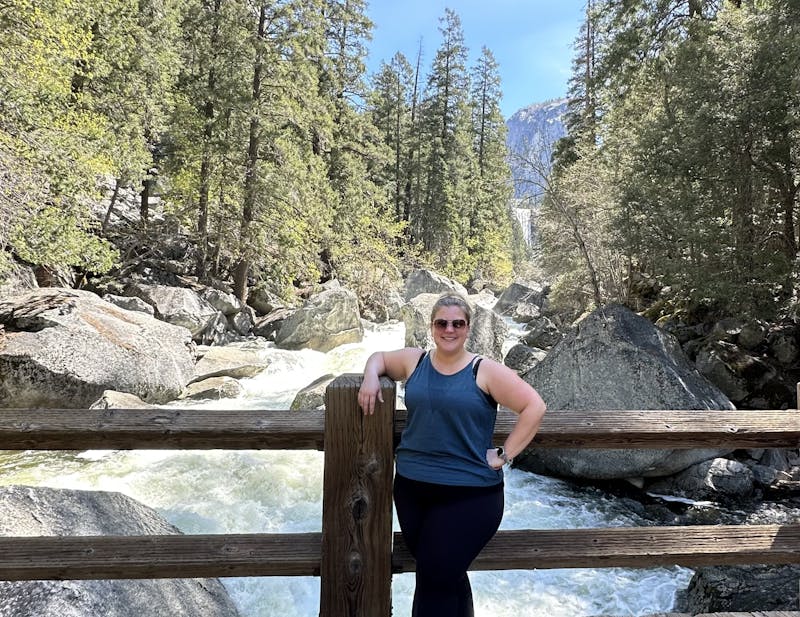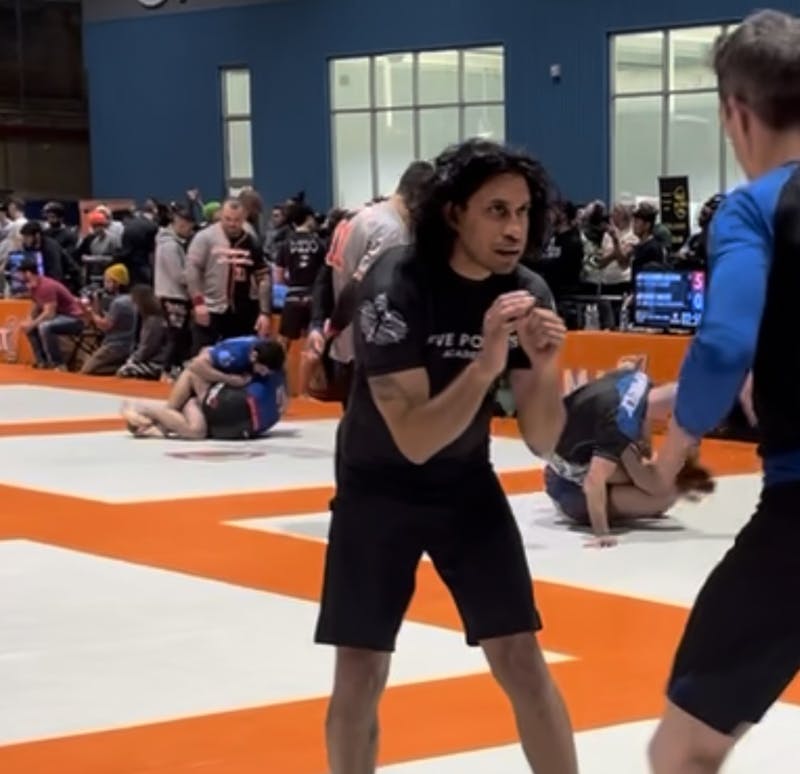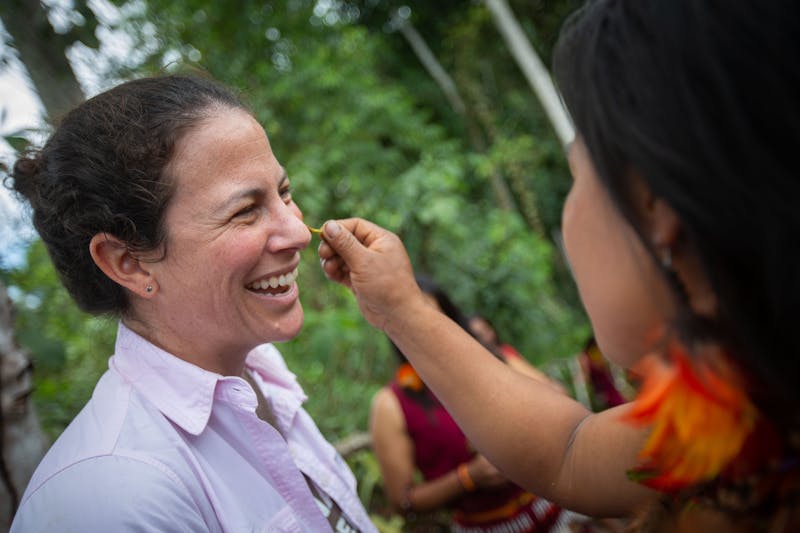Editor’s note: Conservation International is powered by 1,500 people in more than 30 countries — their interests, like their hometowns, are all over the map. In this monthly feature, our experts share some of their favorite things.
A journey in conservation
Jess Brown hiking at Yosemite National Park. Photo courtesy of Brown
Every spring, two of my faraway friends and I meet to explore the outdoors. Our goal is to visit each of the 63 U.S. national parks — hopefully together. I’ve just returned from this year’s adventure, hiking through Yosemite, Grand Tetons,
Yellowstone, Wind Cave and the Badlands.
On this trip, it was extra special to visit Yellowstone — the world’s first national park. Established in 1872, Yellowstone not only protects land and wildlife, but also aims to teach visitors about the history of the Indigenous peoples and local communities that have long-lasting ties to the region. Respecting these often undertold stories has become a big part of my personal conservation
journey. While at Yellowstone, I picked up a copy of “Braiding Sweetgrass” by Robin Wall Kimmerer to read on the road.
I’m nearly finished and can’t recommend it enough if you’re looking to learn about the connection between people and nature from an Indigenous perspective. The imagery and storytelling are profoundly beautiful.
Time spent with nature — physically or through the pages of a book — is always time well spent. When I return home from hiking my hands are always a little dirty, my face a little sunburnt and I’ve usually ripped a pair of pants, but
I’m always reenergized to continue my work as an advocate for nature, people and our collective well-being. It reminds me why we do what we do every day at Conservation International.
Jessica Brown
Senior Director of Media Relations
Washington, DC
Lessons from Brazilian Jiu Jitsu
Neil Vora at a jiu jitsu competition. Photo courtesy of Vora
It’s inspiring to work in conservation; I’m helping to solve some of society’s greatest challenges alongside some of the most dedicated people I know. But the work is hard, too. Hearing about yet another species going extinct, or an
ecosystem being degraded takes its toll. During those moments, I’m grateful to have stumbled on Brazilian Jiu Jitsu, a self-defense martial art.
Some may find it odd that a physician-conservationist like me is so passionate about a combat sport that focuses on forcing your opponent to succumb to your will. But I love it because it teaches me lessons that are applicable to my work. I’m certainly
not the most naturally gifted athlete, but through perseverance I’ve seen improvement. In this sport you quickly learn that no matter how long you’ve been training, ego doesn’t get you far.
Most importantly, Brazilian Jiu Jitsu puts me in a state of “flow” where I’m fully immersed in what I’m doing. It’s like a form of meditation that helps me find peace even when my heart breaks for the destruction of nature.
It has made me a more authentic version of myself. I don’t think it’s a coincidence that I landed my job at Conservation International — one I had dreamed of for more than a decade — shortly after I began training. Brazilian
Jiu Jitsu reminds me that success is never guaranteed, but the decision to pursue my life’s purpose — to protect nature for people — is mine to make.
Dr. Neil Vora
Pandemic Prevention Fellow
Reflecting on wisdom
Dani Amico visiting Nuwa’s Forest in Peru. © Marlon del Aguila
In her new podcast “Wiser than Me,” Julia Louis-Dreyfus, who is famous for her breakout role
as Elaine on the hit sitcom “Seinfeld,” invites women in (or around) their 70s to share their personal journeys, life lessons and regrets. It’s refreshing to hear Louis-Dreyfus (who is 62) tap into the wisdom of our “elders”
— something we seem to brush off in many modern societies.
Working in Peru with Indigenous women, I see they are respected not only in their communities, but by conservation and scientific experts. Their traditional practices, like the use of plants and other natural resources for medicinal purposes, represent
an opportunity for their communities’ economic development and for the conservation of their forests. I’ve often wondered why we don’t similarly value the wisdom of older women in our own societies.
In listening to the podcast, I especially enjoyed the episode in which Louis-Dreyfus talks with actor and activist Jane Fonda about her commitment to the climate and environmental movements. This genuine conversation is worth your time, as two legends
invite us to reflect on what — and who — we value.
Daniela Amico
Senior Communications Manager




